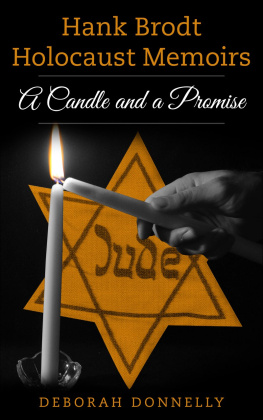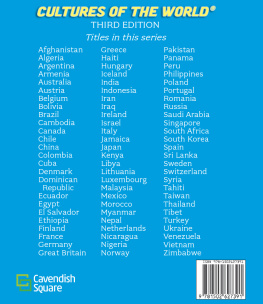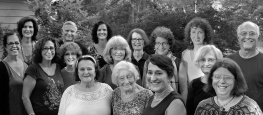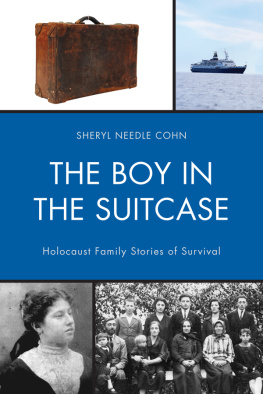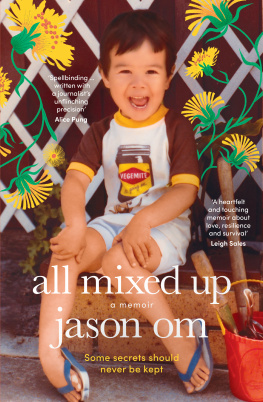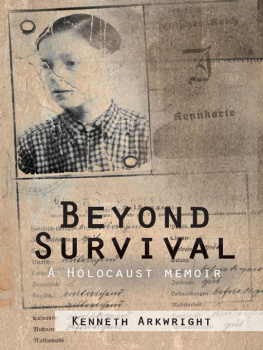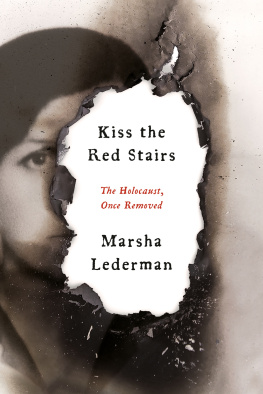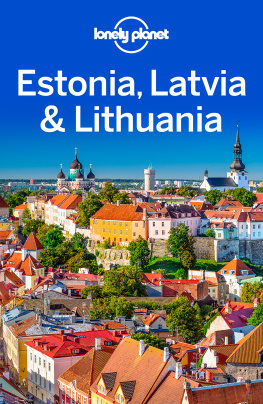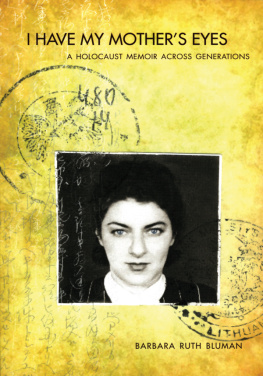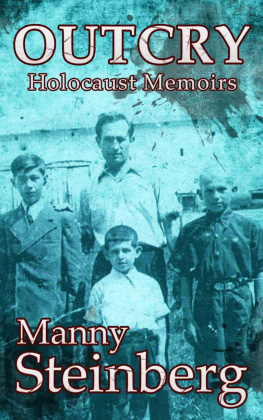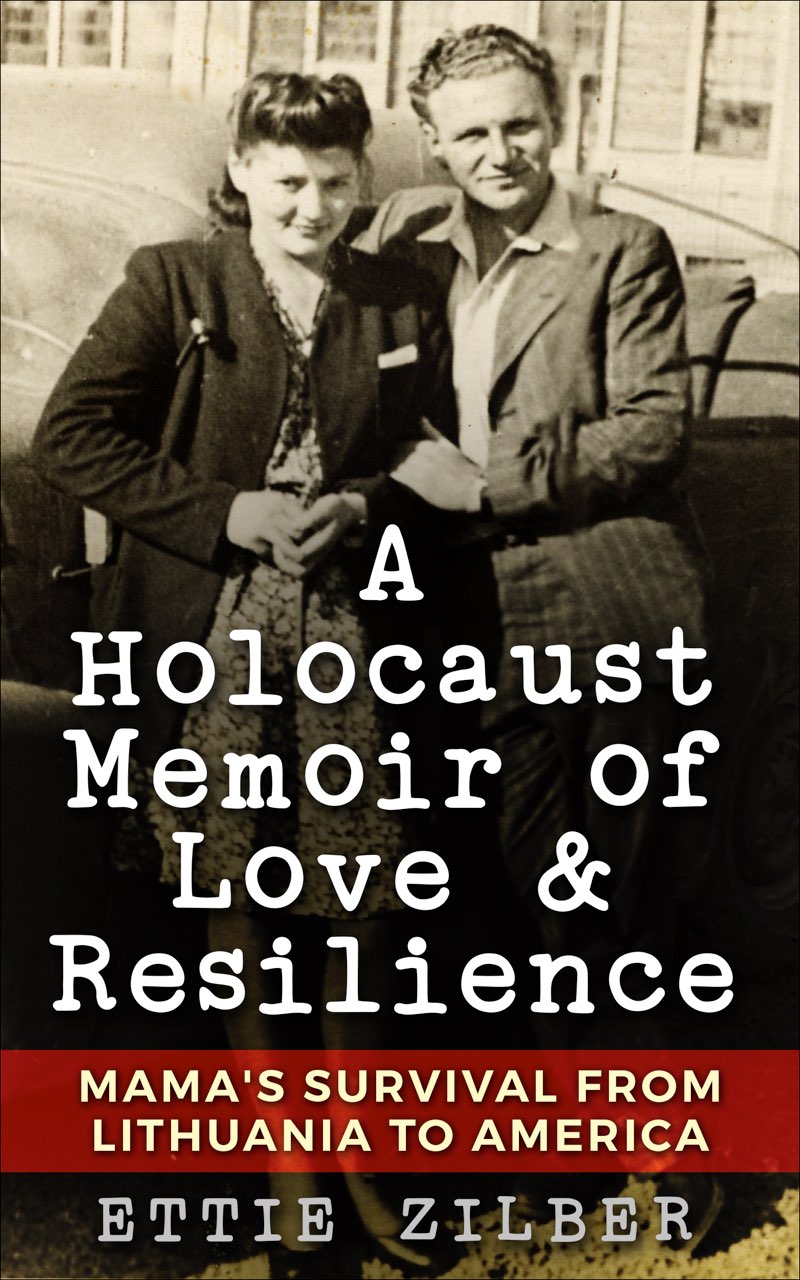A Holocaust Memoir of Love & Resilience
Mamas Survival from Lithuania to America
Ettie Zilber
Title: A Holocaust Memoir of Love & Resilience. Mamas Survival from Lithuania to America
Author: Ettie Zilber
ISBN: 9789493056039 (ebook)
ISBN: 9789493056022 (paperback)
Publisher: Amsterdam Publishers, The Netherlands
Copyright text Ettie Zilber, 2019
Cover photo: Zlata Santocki Sidrer and Liova Sidrer in front of motor-pool jeep, 1948 , DP camp Landsberg, Germany.
All Rights Reserved. No part of this publication may be reproduced or transmitted in any form or by any means, electronic or mechanical, including photocopy, recording or any other information storage and retrieval system, without prior permission in writing from the publisher.
Recommendations
Almost eight decades after the Holocaust, it is fading from memory and sometimes even unknown to younger generations - yet the details need to be maintained. Through first-person testimony and archival research, Love and Resilience is a formidable story of one woman's survival from Lithuania to America, told from her perspective as well as that of her Second Generation daughter. It's clear that future generations, just like this individual family, will be grateful this document exists.- Stephen E. Herbits, former Secretary-General, World Jewish Congress
There has never been a more urgent need for books like Dr. Ettie Zilbers. With more and more survivors gone, the second generation must carry the twin torches of memory and of hope. This faithful, meticulous, and pure-hearted book does both.- Sonia Taitz, author of The Watchmakers Daughter and Great with Child
A Holocaust Memoir of Love and Resilience is an utterly compelling contribution to Holocaust literature. In these pages, we are privy to crucial, daily triumphs and desolation of Jewish life in Lithuania both before and during the Holocaust through the vivid and haunting recollections of Dr. Zilber's mother. As the author revisits the geography of her parents' lives, she adds her own keen experiences and observations about the places where slaughter and survival still echo, and then the impact of the tragedies on her own life. - Rita Gabis, author of A Guest at the Shooter's Banquet: My Grandfather and the SS, My Jewish Family, A Search for the Truth
In Memoriam
To Papa, Liova (Louis) Sidrer, who died too young, without telling his full story
To Mama, Zlata (Lottie) Santocki Sidrer, who made sure she did
To those who didnt survive, whose stories were tragically cut short; and to those who did, and are now gone
you are not forgotten
Dedication
To my children and my grandchildren
You are our legacy
Know from whence you came!
Acknowledgements
To my two wonderful sisters:
Jeanne, for your love, wise counsel and for conducting and recording the many hours of interviews with Mama; and to Rena, for your love, support, and sharp wit;
And, to you both, for taking such loving care of Mama when I could not be there.
To my aunt, Reva Sidrer; your sharp memory helped fill in the gaps
To my husband, Yakov, for your love and encouragement of this project.
To the many Educational Centers, Holocaust Survivor and Second Generation organizations, for your continuous efforts in ensuring that the Holocaust stories are told.
Introduction
I recall my visit to Landsberg am Lech, a lovely city southwest of Munich, Germany. During the Second World War a section of the city was designated as a concentration camp; after the war it was converted into a Displaced Persons (DP) Camp in the American Zone. It felt strange wandering around the buildings where my family had lived among so many surviving refugees. Each one was trying to begin the reconstruction of their life after the horrific genocide. Many babies were born here; I was one.
I was on a mission to document the history of a woman for whom I have consummate respect and of whom I have always been in awemy mother: a survivor of the horrors of the Holocaust, a relocated, renovated and recreated refugee who raised herself out of the ashes, like the proverbial phoenix, to establish a new life, a new future and a new dynasty, without being destroyed by the nightmares of the past. Mamas strength, resilience and unconditional love made me who I am today.
From the moment of my birth I was suckled at my mothers breast with the milk she was proud to be able to feed me; she was actually incredulous that she could give birth and nurse a child after all those dreadful years. She was so happy to have a sign of life and normalcya babyafter so much horror and death. But this baby digested more than milk. I absorbed my mothers stories, as well as her silent sentiments and emotions. Interestingly, today, some scientists claim that trauma changes a persons DNA, and that these genes are passed on to the following generations. All I know is that, given the carnage, I likely should never have even been born to tell these stories.
My sisters and I realized that we missed the boat in getting Papas full story recorded before his early death from cancer at only 66 years of age. Thus, we were determined not to miss the opportunity to document Mamas voice and memory. With a sense of urgency, we decided that we would not wait any longer to record her stories. Thus, a joint effort ensued. My sister, Jeanne, interviewed Mama and recorded her responses onto CDs. Of course, Mama also told us all she knew about Papas biography.
I received the CDs and transcribed them word for word. We encouraged Mama to express the memories of her feelings and thoughts during historical junctures and events. Once done, I had her edit and clarify the transcript. She wanted me to correct her grammar, but in truth I minimized my edits on her sentence structure and vocabulary; I wanted to ensure her own voice came through.
I also had to establish the timeline, because, as we learned from our childhood, we never heard the stories chronologically; they just popped out spontaneously and never in a linear fashion. I then embarked on verifying dates, geographic locations and events from published resources and testimonies of other survivors. Additional historical notes and references were added to corroborate or, in rare instances, to adjust her memory. Interviews with Mama and Papa from my previous genealogical research were added.
My parents did not focus their lives around their traumatic history, as did some survivors, nor did they, like others, avoid the topic altogether. Their stories were told on occasions when they fitted into the context of a conversation or when we asked direct questions. They were never recounted formally nor in order, and therefore always seemed disjointed in our minds. We were always aware that they had a normal life farehn krieg (before the war), that something terrible happened to them during dem krieg but that they survived, and the time after the war was hence referred to as nochen krieg (after the war). The horrible years were referred to as

